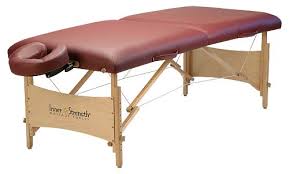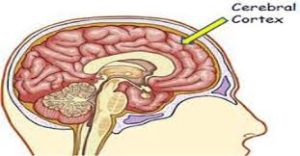That men of a certain age require occasional unsavory medical procedures is old news. Old news for men of a certain age certainly. “Let me tell you about my operation” is anathema for good reason. Operations are similar to digestive systems. Everybody has one; nobody wants to hear about yours. Let me mention—briefly, I promise—a recent experience coming out of anesthesia.

The only other necessary back-story also borders on over-sharing by your intrepid author. I am not a “touchy” person. I adore my running buddies. But I don’t hug them. You know those people who are always touching your hand, patting you on the back, encouraging you with a gentle punch on the arm? I am not one of those people. It’s a cultural thing. You know those cultures where everybody embraces and kisses each time they leave the house? That is not my culture. My birthday is coming up? Please do not get me a massage.

That is as much as you need to know. Possibly more than you need to know. Suffice it to say that I was coming out of general anesthesia surrounded by a staff of competent, compassionate healthcare professionals of various ages and genders. All of whom I was apparently trying to grope.
I have no memory of grabbing anyone. I would deny unequivocally any inappropriate behavior. Although I don’t remember any behavior inappropriate or otherwise in that I was still almost thoroughly unconscious. Yet there is some evidence to suggest that in my insentient state I grasped the arm of the nurse anesthetist and tried to cuddle her as if she were a stuffed animal and I a sleepy six-year-old. Upon regaining the majority of my perceptual abilities, I returned to my “if we’re not married, don’t touch me” policy. And my life will toddle on in this fashion—at least until my next undignified procedure.
In sum: a 62-year-old, sober non-touchy/feely man became an inappropriate, groping, blithering, unrestrained id. Imagine what would happen to the brain and behavior of a young person who had been impaired not for a few hours under the care of trained professionals, but for a few years under the supervision of people who make a living from their willingness to sell drugs to minors. I have observed the behavior of said minors. It’s not pretty.
This article is not about whether or not marijuana should be legal in your state. I’ll spare you my opinion on that controversial subject if you promise not to tell me yours. I don’t know if tax revenue from the legalized sale of pot would improve the quality of classroom education in your jurisdiction. I am not addressing the non-issue of whether or not marijuana is more dangerous than alcohol. Nor am I arguing that your cousin, the fully launched, successful neuro-surgeon, should be denied access to pot 24-hours before she facilitates life-saving brain surgery. I am certainly not contending the direction of the causal arrow: does marijuana cause mild mental illness in adolescents or are kids with mild mental illness more likely to smoke pot? Nor do I know the likelihood that the marijuana your 15-year-old has access to is laced with horse tranquilizers, opioids, or rat poison. Some proportion of pot is tainted with these charming substances; I don’t know what percentage.
Here’s what I do know: your 15-year-old son should not be smoking pot. He stops developing cognitively, emotionally, and in every meaningful way if he spends his adolescence in a haze of pot smoke. His growth stops. Whether or not an adult should smoke pot every day, I don’t know. A 15-year-old should not. I don’t think anyone argues the other side of this issue. Any rational person out there in favor of pot for adolescents? Let me hear from you.

I’m assuming that no loving parent wishes pot on her child. Therefore, the most critical issue regarding raising healthy kids is: how do I increase the odds that my children won’t smoke pot? My thought—based on having chatted with one or two families these past several decades—is that your relationship and only your relationship with your kids is what matters. Your kids have to know you/respect you/trust you for your opinion to take precedence over the insights of their pimply-faced, immature peers. Whether your kids fear you–“I can’t smoke pot, my mom would kill me”–or look up to you–“I can’t smoke pot, my dad would be disappointed”–is another question I’m not prepared to address. I do think your kids have to be connected to you in a meaningful way.

But we’re agreed: the primary function of a loving parent is to keep the kids away from marijuana. Figure it out; make it work; get the job done. If you are reading this column, chances are you are educated and sophisticated. You are a problem solver. So here’s a question: if you agree that keeping your son away from pot until his cerebral cortex stops developing around age 25, how are you going to accomplish that lofty goal?

I’ll print an amalgam of answers—as well as suggesting some of my own ideas—in a subsequent column. I am interested in hearing from those of my readers whose kids have made it to age 25 drug free. I will be equally attentive to those parents whose kids have hit a bump along the way. Respond to the community website if you would. Respond to this email to keep your remarks anonymous. Whatever you do, don’t tell us any more about your recent medical procedure than we would want to know.


